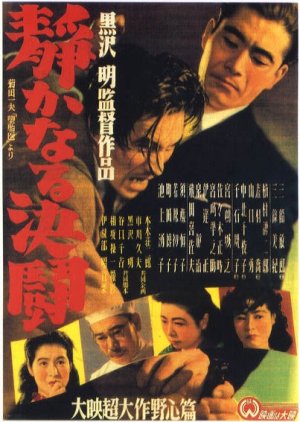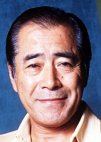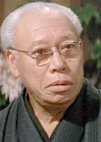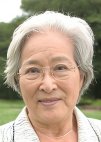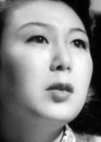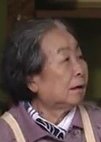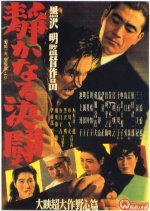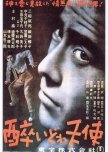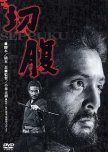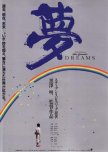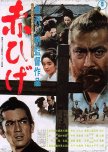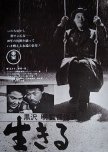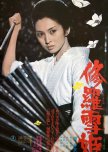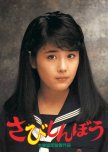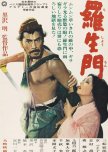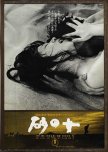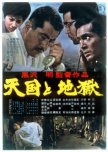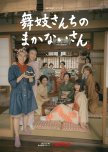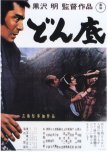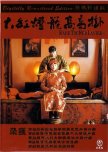- Português (Portugal)
- English
- magyar / magyar nyelv
- dansk
- Título original: 静かなる決闘
- Também conhecido como:
- Roteirista e Diretor: Kurosawa Akira
- Roteirista: Taniguchi Senkichi
- Gêneros: Vida, Drama, Médico
Elenco e Créditos
- Mifune Toshiro Papel Principal
- Shimura TakashiFujisaki TakashihoPapel Secundário
- Sanjo MikiMinegishi RuiPapel Secundário
- Nakakita ChiekoNakada TakikoPapel Secundário
- Machida HirokoImai [Nurse]Papel Secundário
- Wakahara Hatsuko Papel Secundário
Resenhas

Esta resenha pode conter spoilers
"Misfortune makes people stubborn"
The Quiet Duel was the second collaboration of Kurosawa Akira and Mifune Toshiro. The story was told from a field hospital during WWII and then in a small clinic for the poor right after the war. Due to the immediacy of the filming so close to the war the characters' struggles felt authentic. A young Mifune gave one of his most restrained performances as a doctor suffering in silence, refusing to give into desire or despair and living out his conscience dispensing hope to those who had less than he did.Mifune's character, Dr. Fujisaki Kyoji, performs surgery on a man in a ramshackle field hospital low on supplies. During the surgery he accidentally cuts his finger and he continues on for another hour. Kyoji discovers that the patient has syphilis, contracted from his promiscuous lifestyle. The doctor contracted syphilis but had nothing to treat it with until he was sent home much later. The treatment would take 3-5 years, maybe longer. Knowing the stigma of being considered dirty with the disease the pure in heart doctor broke off his engagement with his fiancé. Minegishi, a probationary nurse at his clinic, was snide to him when she saw him treating himself with Salvarsan. Suffering her own shame from being a pregnant, single mother, she came to take his side when she heard the reason for his suffering. Into Kyoji's personal duel of desire and conscience walked Nakata, the man he'd contracted the disease from. Nakata had refused to seek treatment and had also married and impregnated his wife. Kyoji sought to help the couple only to find Nakata as reckless with his wife's health as he was with his own.
Mifune Toshiro had to portray the doctor's silent struggle to deny the desire of his heart and his body, to kill that desire with his conscience and commitment to being a doctor. His stethoscope became his armor against his desire for the woman he loved. He was torn for he had done nothing to deserve being kept from her, so why must he suffer? Minegishi made the correlation that some patients screamed when they were in pain, others dealt with their pain quietly, dripping in sweat. Mifune did an admirable job of portraying the selfless man writhing quietly in pain, refusing to retreat from helping others.
Sanjo Miki's Minegishi had the most character growth of anyone in the film. She went from an annoying, self-pitying probationary nurse to maturing into a caring person and mother. Initially she was one who would have been screaming in pain but learned to focus her attention on becoming a better woman and nurse biding her time for the doctor she had come to love.
As a modern viewer, I did question the good doctor performing surgery. Just as he had contracted the disease from a surgical accident, couldn't a patient be at risk as well? I suppose the poor people who came to see him unable to pay had few other choices.
Kurosawa kept the framing tight, never leaving his tormented doctor's face too far from sight. He was careful to make the distinction between Kyoji, an innocent contracting the disease and Nakata, a sexual scoundrel. Of course, there are many shades of gray with this medical issue, but in 1949 he was not going to explore those.
Despite the melodrama and heartbreak, the movie did end on a hopeful note. Kyoji and Minegishi learned to walk with their chins up and face their problems head on, teaching their patients to do the same thing. They might have to suffer as well, but where there are clouds the sun is also present if you can reach high enough.
4/25/23
Esta resenha foi útil para você?

